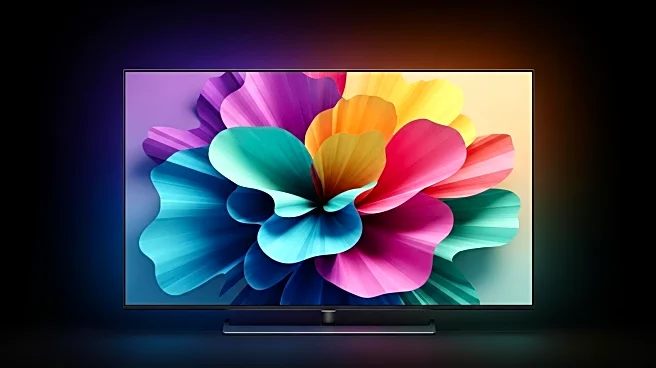What's Happening?
YouTube TV has removed Univision's Spanish-language networks from its platform, leading to a significant disruption for millions of Hispanic viewers who rely on these channels for news, sports, and entertainment. The decision comes amid a contract dispute between Google, YouTube TV's parent company, and TelevisaUnivision. The disagreement centers around Google's proposal to shift Univision from its basic plan to a more expensive Spanish-language add-on package, which Univision claims would result in an 18% fee increase for its viewers. This move has drawn criticism from members of Congress, including Sen. Ted Cruz, who accused Google of abusing its monopoly power. The blackout occurred shortly before a potential federal government shutdown, a critical event covered by Univision journalists.
Why It's Important?
The removal of Univision channels from YouTube TV highlights the ongoing challenges in negotiations between major media companies and streaming platforms. This development is significant as it affects a large segment of the Hispanic community in the U.S., potentially limiting their access to culturally relevant content. The dispute underscores the broader issue of how streaming services manage content distribution and pricing, which can impact consumer access and media diversity. Additionally, the involvement of political figures in the dispute suggests potential regulatory scrutiny over Google's market practices, which could have implications for future negotiations and media distribution strategies.
What's Next?
The contract dispute between YouTube TV and Univision may lead to further negotiations as both parties seek a resolution. The outcome could set a precedent for how streaming services handle content distribution and pricing for niche markets. Additionally, YouTube TV is facing another looming deadline with NBCUniversal, which could result in a second blackout affecting additional channels. Stakeholders, including political leaders and consumer advocacy groups, may continue to pressure Google to address concerns over pricing and access to diverse programming. The resolution of these disputes will likely influence the future landscape of streaming services and their relationship with content providers.
Beyond the Headlines
The dispute between YouTube TV and Univision raises questions about the ethical responsibilities of streaming platforms in providing equitable access to diverse content. As streaming services become increasingly dominant, their decisions on content distribution can significantly impact cultural representation and media consumption patterns. The situation also highlights the potential for increased political involvement in media negotiations, as lawmakers express concerns over monopolistic practices and consumer rights. Long-term, this could lead to regulatory changes aimed at ensuring fair competition and access to diverse media content.











